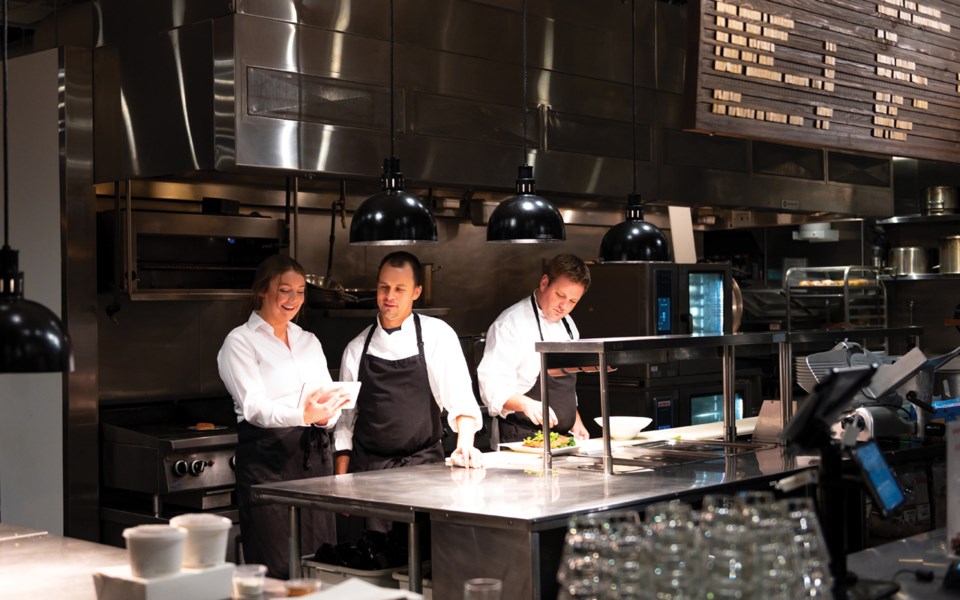As Whistler gears up for what is anticipated to be a surge in visitation to the resort this summer, Ottawa has eased rules on temporary foreign workers that should help local employers fill desperately needed staffing positions.
On Monday, April 4, the federal government announced a series of changes to the temporary foreign worker program (TFWP) aimed at stimulating areas of the economy that have been particularly hard hit by the COVID-19 pandemic. One of those was a move to increase the ratio of temporary foreign workers a business can employ to 30 per cent in several different sectors, including, for Whistler’s purposes, accommodation and food services.
“That will be a game-changer, especially for many restaurants in Whistler,” said Sea to Sky MP Patrick Weiler.
Ottawa also extended the validity of Labour Market Impact Assessments (LMIA), essentially a document an employer may need to obtain before hiring a foreign worker that demonstrates the need to fill a position—and that no Canadian worker or permanent resident is available to do the job. Once an employer successfully obtains a LMIA, the employee can apply for a work permit. Prior to the pandemic, the window of validity for an LMIA was six months, which increased to nine months in the pandemic. This latest move extends the timeframe to 18 months, allowing employers crucial time to find the right employee and reducing the chance of doubling up on an application should the LMIA expire before a work permit is issued.
“However, today’s announcement doesn’t address the cost and red tape associated with the LMIA and TFW processes which remain barriers for many small businesses,” wrote the Canadian Federation of Independent Business on April 4. A recent report from the organization found that 55 per cent of Canadian small businesses are currently experiencing staff shortages.
“While the new changes are a step in the right direction, there is still more that could be done to help address labour shortages.”
On a related note, the Liberals also announced they would be getting rid of the policy that automatically rejects LMIAs for low-wage occupations in the accommodation, food services and retail sectors in regions where the unemployment rate is higher than six per cent.
This wasn’t likely to impact Whistler, however. As far back as 2014, the Whistler Chamber of Commerce was pushing for resort-specific unemployment data to help make the case that foreign workers are an important piece of the community’s labour puzzle. More recently, Weiler has led that charge, and, several weeks ago, he sat down with Statistics Canada staff, which have been working on sussing out labour data for Whistler, an effort that was delayed by COVID. While StatsCan is still finalizing the different catchment areas it will capture labour market data for, expected sometime this spring, Weiler did get a sneak peek at Whistler’s current unemployment rate, gathered from EI data and Canada’s monthly labour force survey.
“They were showing me a little preview, and I think the unemployment rate in Whistler is about three per cent, so it’s very, very low and I think it speaks to some of the labour challenges we have,” Weiler noted.
Weiler has also been instrumental in pushing for a streamlining of the TFW process. Among the proposed changes is the creation of a trusted employer stream that would speed up the permitting process and remove some of the administrative hurdles employers had to cross to secure a foreign worker. The goal is to bring processing times down to two months, half of the typical current timeframe, Weiler said.
Then there’s the incoming Municipal Nominee Program, a regional economic immigration program that will allow communities, chambers of commerce and local labour councils to directly sponsor permanent immigrants based on their specific labour needs. The program is being modelled off of a pilot already underway in northern and rural communities.
“There’s been some consultations with that going on over the last year, and there are some concerns that need to be addressed that the provinces have,” Weiler said, noting he’s hopeful the program will launch sometime this year.
As COVID restrictions have loosened in Canada, foreign workers’ interest in Whistler as a landing spot has increased—but with a caveat, said Joel Chevalier, owner of Culinary Recruitment International (CRI), a locally-based company that pairs employers across Canada with skilled international workers, most often in the culinary industry. Interest from foreign workers, primarily in hospitality, in Germany and other European nations is beginning to pick up, although Chevalier said he’s seen more demand for urban locales like Toronto and Vancouver. There has also been growing interest from the Middle East and India, but Chevalier made clear the qualities of Whistler that have historically been a major draw for international workers are not as important to these prospective employees.
“They’re interested in Whistler, but they’re most interested in just getting to Canada,” noted Chevalier. “They’re not coming for the city life or the ski-resort life; they’re coming to be in a place where they can obtain permanent residency, so they’re not as particular about Whistler or Vancouver.”
Given that trend, as well as the continued strong demand from Morocco through Canada’s French mobility program—CRI has helped bring in dozens of Moroccan chefs to the resort in recent years—Chevalier said local employers and the wider community would do well to consider how best to welcome and accommodate a more diverse stream of workers.
“Whether we’re talking about people coming to Canada from another country or people already in Canada that have a different background than what you might traditionally see in Whistler, I think employers are going to need to step up their ability to attract a larger diversity,” he said. “That means different programs, different tactics, different cultural perspectives. I think that will be important.”




